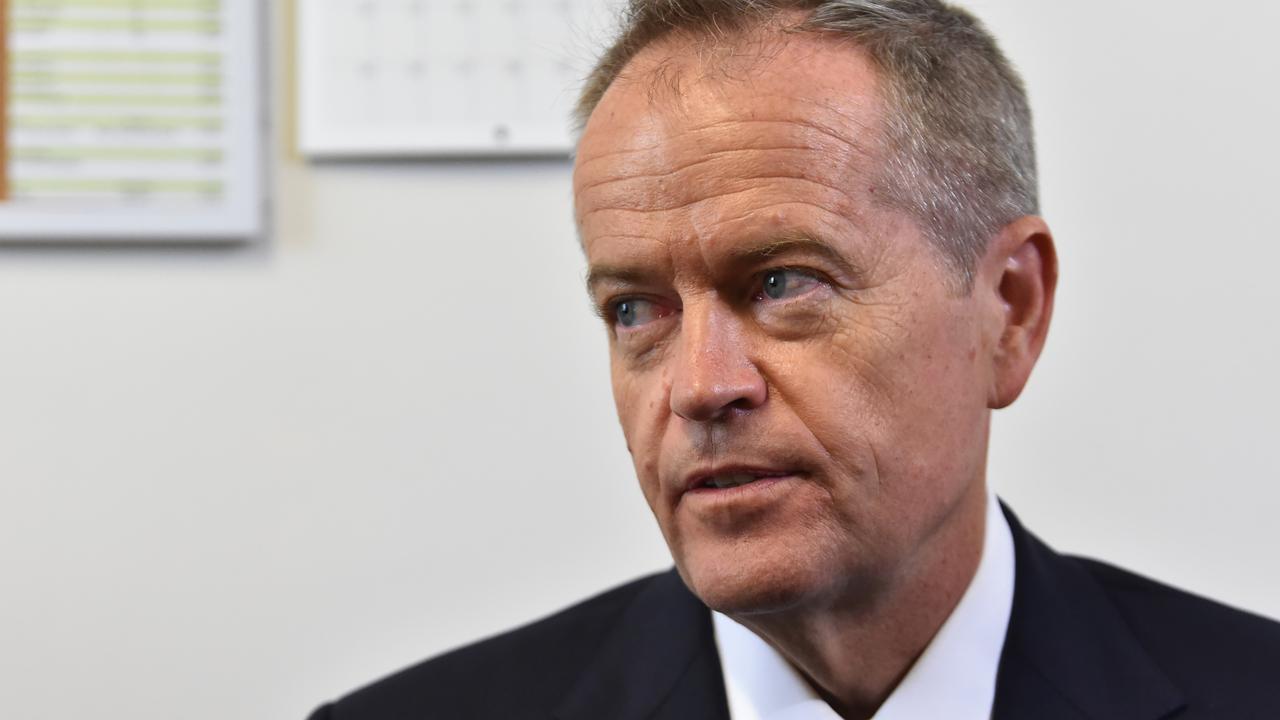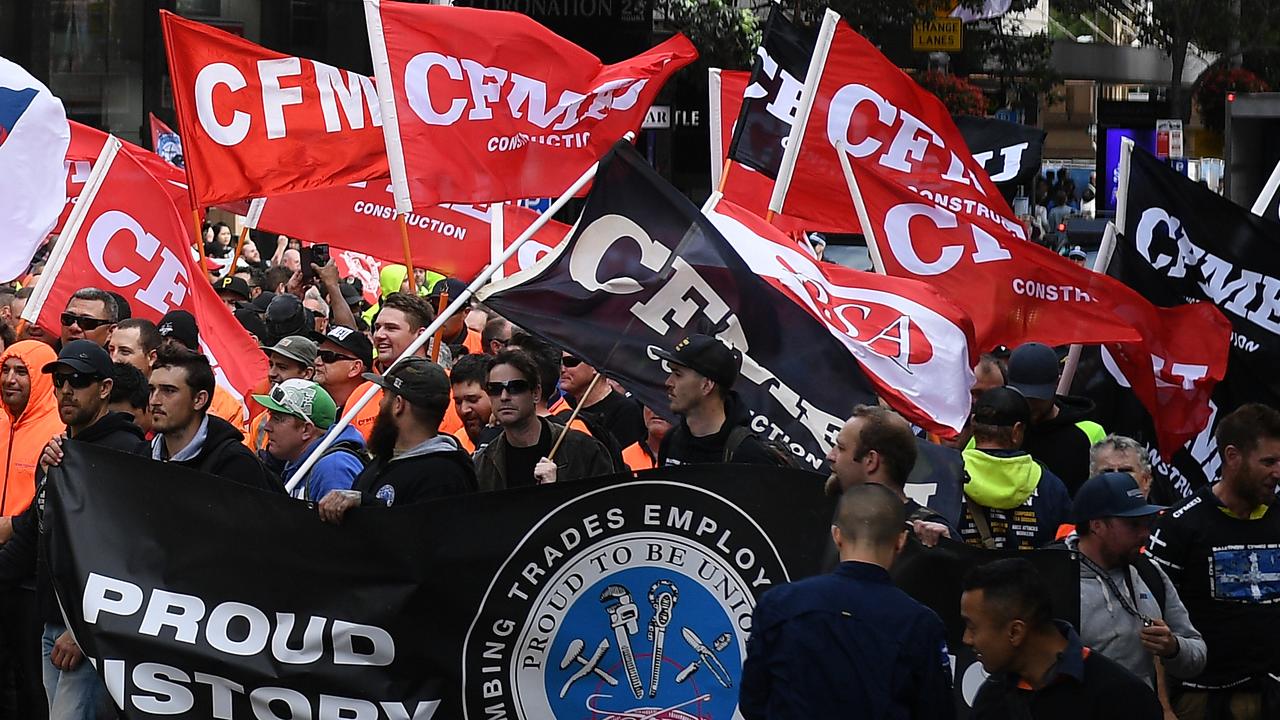Union royal commission: AWU ‘profited’ from side deals
Bill Shorten’s former deputy at the AWU has told TURC the union ‘profited’ from dealings with construction giant.

Bill Shorten’s former deputy at the Australian Workers Union has declared the union “profited” from its dealings with builder Thiess John Holland after he arranged for the joint venture to make hundreds of thousands of dollars in payments.
Cesar Melhem came under heavy fire at the trade union royal commission yesterday for a raft of invoices sent to a range of companies that yielded more than $900,000 over several years.
Angrily objecting to repeated assertions that the invoices were “false” and intended to “disguise” payments to the union — allegedly in return for favourable treatment during industrial bargaining — Mr Melhem insisted that the payments were for legitimate services from the union.
But he struggled to give details of services he claimed the union provided, including advertising in the union’s magazine, training, and so-called paid education leave.
Mr Melhem was assistant Victorian secretary to Mr Shorten from 2001 until he took over from Mr Shorten in 2006.
He took the stand yesterday following days of damaging allegations from Thiess John Holland executives, who testified they had agreed to pay the AWU $100,000 a year.
Mr Melhem admitted to arranging the payments, but he denied evidence from the executives that the payments coincided with the enterprise bargaining agreement between the union and the construction joint venture. “I’m not denying in 2007 that we provided services and we budgeted for $110,000 …. We made some profit out of this and we provided legitimate services”, Mr Melhem told the hearing.
“I recall in 2007 we’ve sat down and talked about providing various services and the figure of 110,000 came up.”
When asked to prove that a payment bought advertising in the AWU’s Australian Worker magazine, Mr Melhem claimed there was some confusion.
“There was not confusion, you’re making it up,” Mr Stoljar said. “There was no advertising in the AWM (that was) the subject of this invoice and the purpose of this invoice was to disguise the true reason.”
“No I don’t accept that,” Mr Melhem replied.
Mr Melhem, now a Victorian Labor MP, told the inquiry advertising was “between the national office and Thiess John Holland”, although he admitted his branch sent the invoice.
Several times Mr Stoljar suggested invoices sent to employers were “false”, which Mr Melhem denied. “You instructed ... the accounts department to place that designation research work done on back strain in the civil construction industry ... the purposes of these invoices was to disguise the true purpose of the payments?”
Mr Melhem replied: “Absolutely not. I totally reject that.”
Mr Melhem cast doubt on invoices for paid education leave, an initiative defended by the Opposition Leader in the royal commission witness box in July.
Highlighting an invoice for paid education leave sent to chemicals company Huntsman, Mr Stoljar asked Mr Melhem: “Paid education can cover more or less anything?”
“Look, you could say that,” Mr Melhem said. “Probably should have used a different term … It should have been a broader name probably.
“This arrangement was there before my time and continued when I became the secretary as well.’’
Mr Melhem, who left the AWU for parliament in 2013, stood down as whip after details were revealed of the 2010 agreement for contractor Cleanevent to pay the AWU $75,000 over three years and provide a list of casual workers for inclusion on the union’s membership roll.
Mr Melhem yesterday defended the deal, which allegedly saved the company $1.5 million in wages.
He said claims he sold out workers were “hurtful”.
“That was the most hurtful thing,” he said. “In my 23 years I never sold a worker out. You made a lot of assumptions … and your assumption was wrong.”
Mr Stoljar grilled Mr Melhem about invoices issued by the AWU to Downer EDI; glassmaker ACI, which allegedly paid the union about $500,000 over three years; and Unibuilt, a firm that donated the wages for a staffer to Mr Shorten’s 2007 election campaign.
Mr Melhem insisted ACI’s workers were the best paid glassmakers in the world.
Mr Stoljar asked Mr Melhem: “These arrangements that we have been looking at, are arrangements which are designed to procure revenue and thereby build up wealth for the union, do you agree with that?”
Mr Melhem replied: “For the members of the union to provide services, yes, that’s what we did. We provided services to members.
Mr Stoljar: “In some cases to build up membership numbers?”
Mr Melhem: “No.”




